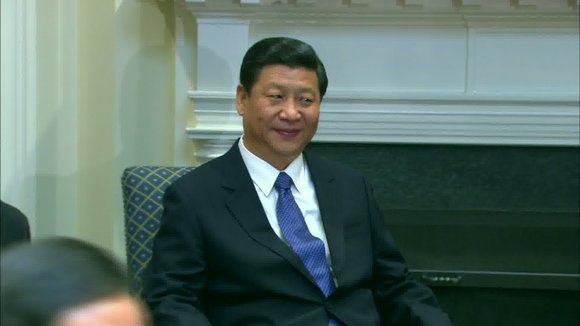China Calls for Calm as US Dispatches Naval Might to Korean Waters
CNN/Stylemagazine.com Newswire | 4/12/2017, 7:10 a.m.
By Steven Jiang
Katie Hunt and Ben Westcott CNN
(CNN) -- China called for a "peaceful" resolution to tensions on the Korean Peninsula Wednesday, as a United States aircraft carrier strike group churned towards the contested region.
Chinese President Xi Jinping discussed the situation in North Korea and Syria with US President Donald Trump in a telephone call on Wednesday, China's foreign ministry said, in what one analyst described as a "new phase" of China-US relations on North Korea.
"I think at this point the common interest between the US and China outweigh (North Korea saber-rattling)," Alexander Neill, a senior fellow at the International Institute for Strategic Studies in Singapore, told CNN.
"China may be prepared to do some sort of tradeoff... They want to rein in (leader) Kim Jong Un."
Trump has repeatedly called on China to do more to rein in its unruly neighbor, which has stepped up its missile development and nuclear program since 2016.
The US dispatched the aircraft carrier USS Carl Vinson after the latest missile test by North Korea last week, drawing a forceful warning from Pyongyang.
China's Ministry of Foreign Affairs spokesman Lu Kang said Trump and Xi had pledged to stay in close contact after their first meeting earlier this month and the phone call didn't indicate any change in China's position.
North Korea 'looking for trouble': Trump
The unexpected phone call between the two came after Trump turned to Twitter to vent his frustrations over North Korea.
"I explained to the President of China that a trade deal with the U.S. will be far better for them if they solve the North Korean problem," he tweeted.
"North Korea is looking for trouble. If China decides to help, that would be great. If not, we will solve the problem without them! U.S.A.," he wrote in a second tweet.
According to a statement from China's Ministry of Foreign Affairs (MOFA), Xi reiterated that China wants a denuclearized Korean peninsula and called for peace and stability.
"China advocates to resolve the issue through peaceful means, and is willing to maintain communication and coordination with the US on the Korean Peninsula issue," the statement quoted Xi as saying.
The two leaders met for the first time last week at Trump's Mar-a-Lago estate in Florida.
'A tipping point'
In the wake of the Trump-Xi meeting, US Secretary of State Rex Tillerson said that China understood how dangerous North Korea's nuclear program had become and had agreed action must be taken to stop it.
China hasn't signaled any clear change in policy towards its neighbor and Xi's language followed China's usual script on North Korea.
However, Wednesday's read-out was the first time China confirmed in detail that the two leaders had directly discussed North Korea.
Two Chinese statements released directly after the Mar-A-Lago meeting didn't mention North Korea by name, even though the country had been expected to dominate discussions.
On Wednesday, Global Times, a state-run but provocative tabloid, released an editorial, warning North Korea to "avoid making mistakes at this time."
"More and more Chinese support the view that the government should enhance sanctions over Pyongyang's nuclear activities ... Pyongyang's nuclear weapons program is intended for securing the regime, however, it is reaching a tipping point," the editorial said.
What China wants and fears
Despite the suggestions that they might be working more closely together, China and the US have very different views on the Korean peninsula.
"China's best case scenario, what it would really like to happen, would be a liberalized regime in the North, akin to some of the reforms that took place (in China) in the 1980s, so introducing economic reform, removing the concentrated power of the Kim family," Neill said.
China sees North Korea as a buffer between their vital economic regions next to the border, and South Korea, with its heavy US military presence, said John Delury, an associate professor at Yonsei University.
"North Korea has always been a very critical and also a very sensitive piece on the chessboard for China," he said.
Euan Graham, director of the International Security Program at Sydney's Lowy Institute, said the Korean peninsula was the focus of a "game of chicken" between Trump and Kim -- much to China's dismay.
"(Both are) waiting for the other to blink and you can imagine from China's risk-adverse perspective that could end very badly," he told CNN.




